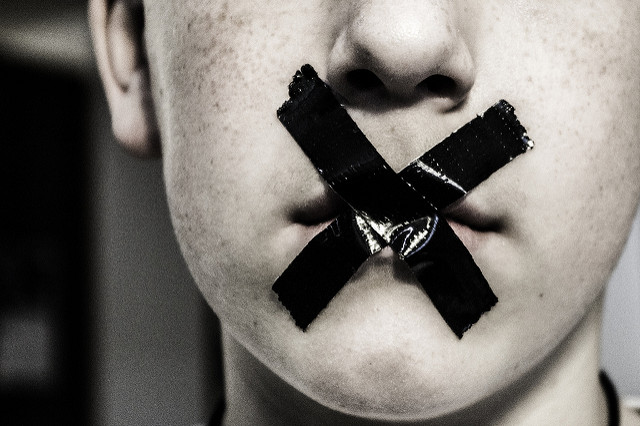
Editorial Note: The following is reprinted with permission from Eleanor Skelton’s blog. It was originally published on November 1, 2015.
So I’m active in several online communities that discuss homeschooling and spiritual abuse. I also read a lot. Almost daily, I post articles and blog posts that I find interesting.
I’m also Facebook friends with people I met during each of the four times I moved cross-country between Texas and Colorado, people from every church I went to growing up, every place I’ve worked, people who are my fellow homeschool alumni and college classmates. This means that everything I share is being viewed by people all over the human spectrum.
I value this diversity, that my community is no echo chamber. I welcome the opportunity to be challenged and corrected and grow, and I hope my friends do, too.
Yes, there are periodic flame wars in the comments, but I’ve also seen successful dialogue. This is why I want to foster debates and discussion, because I believe that if I limit myself to only people who agree with me, change will never happen.
But a couple of arguments surface over and over.
“Not all homeschoolers were raised in cults.”
“What does abuse in these churches have to do with true Christianity?”
And these rebuttals are killing our discussions. Here’s why. This week, I read an article posted by Relevant magazine on why there’s a problem with saying All Lives Matter. The subtitle read: “There’s a difference between ‘true’ and ‘helpful.'”
Responses like this usually demonstrate a failure to listen. Conversations usually go:
Person 1: “This is what my experience with homeschooling / purity culture was like.”
Person 2: “Good point, but remember, not all homeschoolers were abused / raised in cults.”
Person 1: *awkward silence* (thinks) But I wasn’t talking about all homeschoolers. I was talking about me.
And they feel like you don’t think their story is important.
It’s hard to have these conversations, I think. If you say, “Hey, this happened and it was bad,” or express criticism, you get a lot of “not all homeschoolers” responses. Which is technically true.
But the one doesn’t invalidate the other. Sure, not all homeschoolers were raised in cults. But some were, and problematic and harmful things happened as a result. I’m not against homeschooling as a form of education, and I don’t think it should be banned, but I do think the problems within the movement must be addressed.
“No True Christian” is basically another version of the No True Scotsman fallacy.
Person 1: “This really awful thing happened in my church / to Amish girls / to Pentecostals.”
Angry Defensive Person 1: “Not all Apostolic Pentecostals are like this!”
Angry Defensive Person 2: “What does this have to do with true Christianity?”
These comments are missing the point. Orthodoxy isn’t the issue here, abuse is. And if you’re more concerned with heresy than hurting people, you are contributing to the problem.
And almost every group thinks they are the true believers, the genuine thing. So asking whether or not the Amish are truly Christians is irrelevant. They believe they are. That’s why they live in isolation, making sure they aren’t corrupted by deviating opinions. Other high control religious groups operate similarly.
Just because you might not believe cult members or other denominations are actually Christians doesn’t stop them from identifying as believers. But shouldn’t Christians be more concerned about people who claim to follow their savior perpetrating abuse than whether or not the abusers are heretics?
Let’s be honest here. We use these arguments to protect ourselves. We don’t want to be associated with sexual abuse and hypocrisy, we don’t want our image threatened. So we cry “not all homeschoolers” to defend our educations, and “not true Christians” to defend our core beliefs. We don’t want to think that our community might be wrong, we hide our faces from the wounds, cover our ears and refuse to listen.



